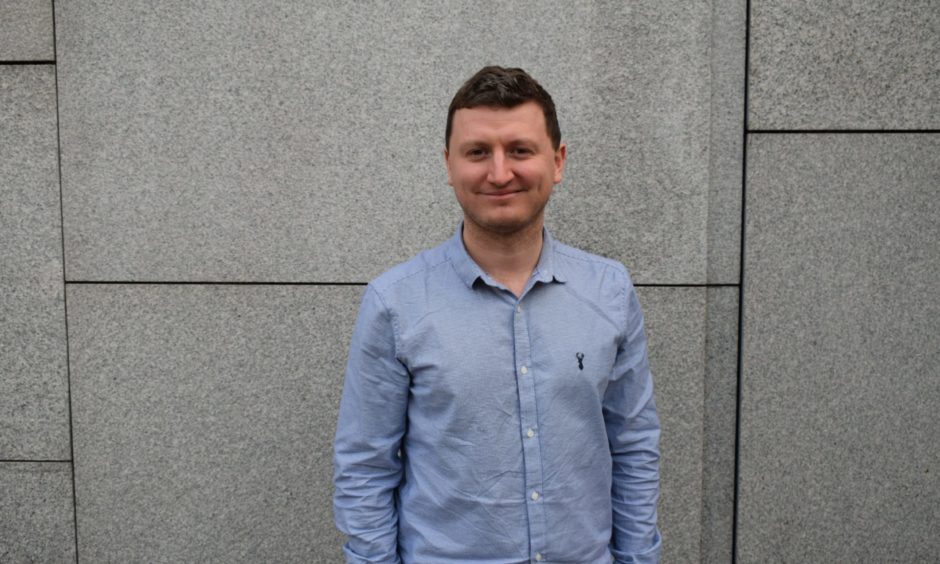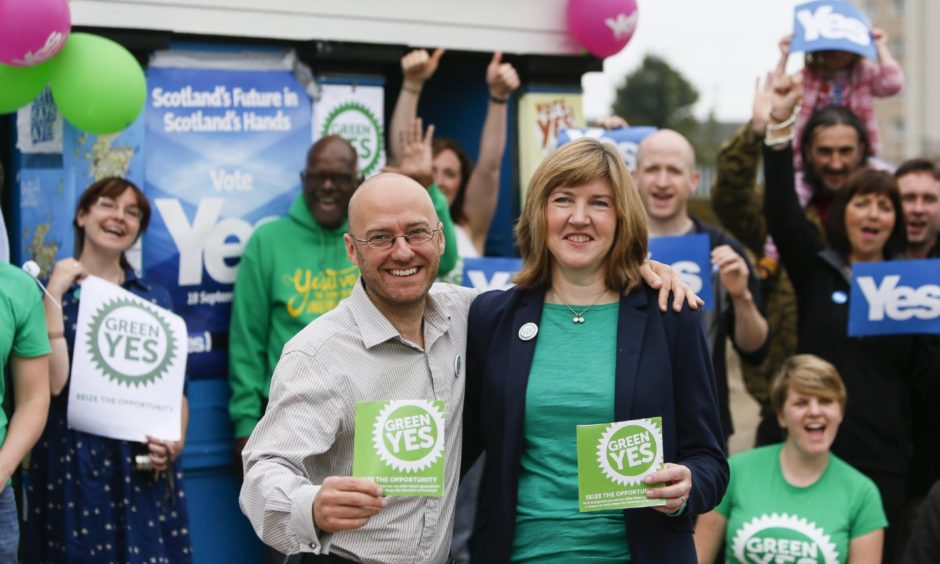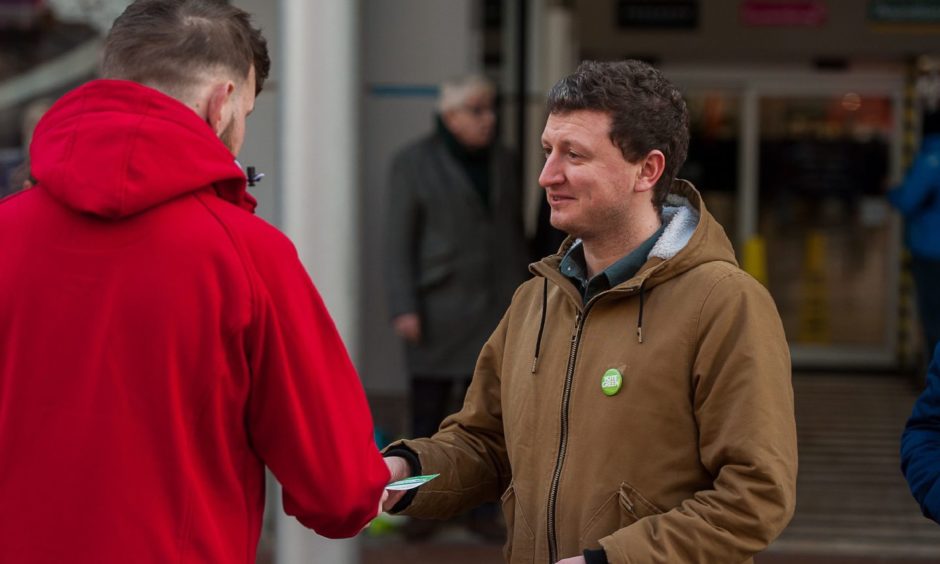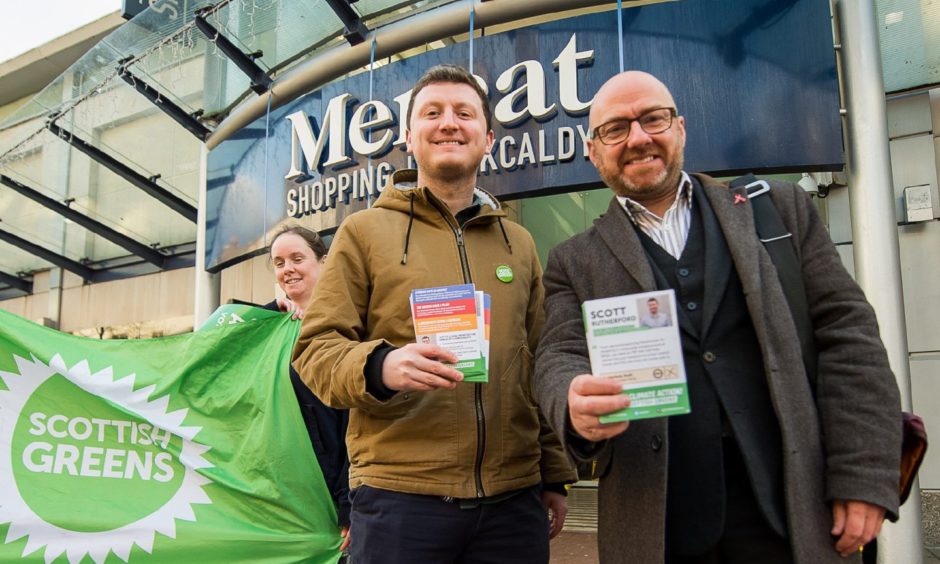Scott Rutherford had little interest in politics until he was left to survive on £55 a week because of the priorities of others.
The Kirkcaldy native “lived for the weekends” while at school, and never questioned the policies of decision-makers before he realised the impact they were having on his life.
“The thing that got me interested in politics was being on the blunt end of the coalition government’s austerity programme,” the 28-year-old said.
“I came out of education into the job market thinking I would find something to tide me over. I think that was in about 2013, and it was just absolutely bleak.
“I ended up on one of those job schemes where you work 30 hours a week, and you get dole money, you get £55. It was just a brutal way to live.
“So eventually I became a carer, and so this whole time, living a life of austerity, living a life below the minimum wage, it does focus your attention more sharply on Britain in the 21st Century, and the realities of political decisions.”
‘Parties like the SSP?’
If it was the welfare reforms of the coalition government at Westminster that first forced Mr Rutherford to question policy and power, it was during the independence referendum campaign that he found his home.
I think I was politically open but, at the same time, politically homeless between 2013 and 2014.”
“I think I was politically open but at the same time politically homeless between 2013 and 2014,” he said.
“Labour under Miliband? Well, that was kind of a continuation of austerity.
“The SNP? Well, they were okay, but they were soft and a bit neo-liberal on a lot of issues.
“Parties like the SSP? Well, I was kind of interested in, but they were rudderless and didn’t really stand for much.
“The Greens, I thought, ‘well, they are nice, I can empathise’, but I didn’t really consider them serious.
“Fast-forward to 2014 and the referendum, and hearing speakers like Patrick Harvie and Alison Johnstone, and thinking, ‘these people speak with the eloquence of government ministers and I am totally onside with their politics here’.
“Off the back of that, after my first pay cheque as a carer, I thought, ‘yeah, I’m going to get involved with the Greens’.
‘I had no interest in becoming a politician’
Mr Rutherford joined the Greens in 2015, having been motivated to become active by the referendum outcome.
“I was crushed after that referendum result. I was thinking, ‘I sort of feel like my future has been kicked in the teeth a bit’, so I’m going to get involved in politics, I’m not going to accept austerity, I’m not going to accept a minimum wage that isn’t enough to scratch a living,” he said.
After a few years working as a carer, Mr Rutherford, who had previously studied social sciences at college, enrolled at Napier University to embark on a degree in the same subject.
Despite his interest and increasing involvement, he had no ambition to stand for election at that time.
“I had no interest in becoming a politician at all. I would have been embarrassed at the idea,” he recalled.
However, in 2017 he ended up standing in the Burntisland, Kinghorn and Western Kirkcaldy ward for Fife Council, and last year Mr Rutherford became the first-ever Green candidate to stand in Kirkcaldy and Cowdenbeath at a UK election.
He outpolled the Brexit Party in his home seat and impressed senior figures in the party in the process.
“Scott took the equalities debate to the SNP in Kirkcaldy and Cowdenbeath in the general election after Neale Hanvey was suspended,” said Lorna Slater, the co-leader of the Scottish Greens.
“He worked hard to engage with the local community there too.”
Around the time of the election, late last year, Mr Rutherford started a new job, working as a researcher for the party’s other co-leader, Mr Harvie.
“I was working at one of those tatty tartan tourist shops on the Royal Mile, and then I got a job at Holyrood. I just moved down the road,” he said.
It has been an eye-opening experience for Mr Rutherford, who will be named on the Mid Scotland and Fife regional list for the Greens at next year’s Holyrood elections.
“It’s the fastest learning curve I think I’ve ever experienced, on a daily basis to see how the leader of the party operates, how he manages a mammoth workload, and seems to have read everything, and is always prepared,” he said.
“That is very impressive to watch. It’s something I can’t imagine emulating or trying to emulate.
“So I guess my aspirations are just to see where I fall. To try to be a force for progressive change, or support those who are forces for progressive change.”




